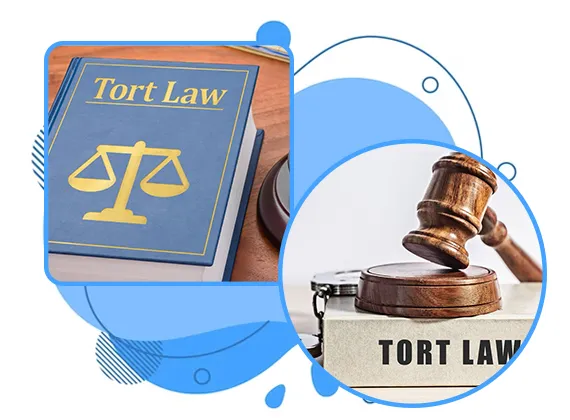Torts can shift the weight of loss from the injured party to the person that is at fault or better able to bear it. Typically, a claimant seeking remedies under tort law will seek monetary recompense for damages. Injunctions and reparations are less common remedies.
Tort law's borders are established by common law and state statute law. Judges have broad discretion in assessing whether activities qualify as legally cognizable wrongs, which defenses may outweigh any particular claim, and the proper level of damages when reading the text of the legislation. Although tort law differs by state, many courts look to the Restatement of Torts for guidance.
BookMyEssay has team of professional Ph.D. writers who provide best-in-class Tort Law assignment help.
The Different Types of Tort Laws:
Torts are classified into three types: intentional torts (e.g., hitting someone on purpose); negligent torts (e.g., causing an accident by failing to respect traffic laws); and strict responsibility torts (e.g., liability for making and selling defective products. Intentional torts are wrongs that the defendant knew or should have known were going to happen as a result of his or her conduct or omissions.
Negligent torts occur when the defendant's activities were excessively dangerous. Unlike deliberate and negligent torts, strict liability torts are not based on the defendant's level of care. Rather, in strict liability situations, courts examine whether a specific consequence or injury occurred.
Trespass, assault, violence, carelessness, products liability, and intentional infliction of emotional distress are all examples of torts. There are also distinct categories of tort law, such as nuisance, defamation, invasion of privacy, and economic torts.
What are Some of the Remedies?
Torts are recognized as civil wrongs by the law, and affected parties can seek restitution for their losses. Injured parties may file a lawsuit to seek monetary damages or to get an injunction requiring a party to discontinue an action. To prevent future misbehavior, courts sometimes impose punitive penalties in addition to compensatory damages in some circumstances.





 3 Bellbridge Dr, Hoppers Crossing, Melbourne VIC 3029
3 Bellbridge Dr, Hoppers Crossing, Melbourne VIC 3029

